Donald Tusk Has Challenged the Status Quo
Adelina Marini, November 17, 2017
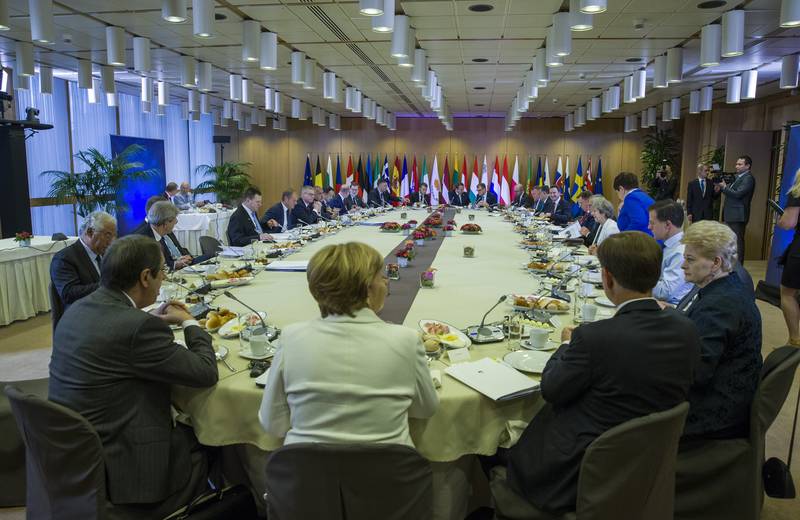 The autumn European Council will remain in history with the adoption of the Leaders' Agenda which the EU is looking in the mirror with. At the EU summit on 19-20 October, the leaders of the member states were faced with an existential choice - either to be part of a new EU or slip into the periphery of what will remain of the old one. By approving the Leaders' Agenda, the EU will in fact change its modus operandi - a motor of the EU will no longer be searching for a common denominator of the member states but the most ambitious of them will take over the helm, whereas the rest will decide whether they want to go further or not.
The autumn European Council will remain in history with the adoption of the Leaders' Agenda which the EU is looking in the mirror with. At the EU summit on 19-20 October, the leaders of the member states were faced with an existential choice - either to be part of a new EU or slip into the periphery of what will remain of the old one. By approving the Leaders' Agenda, the EU will in fact change its modus operandi - a motor of the EU will no longer be searching for a common denominator of the member states but the most ambitious of them will take over the helm, whereas the rest will decide whether they want to go further or not.
European Council President Donald Tusk's (Poland, EPP) proposal about what needs to be done by the end of his term and the change of working method, which euinside wrote in detail about, had many targets. This political move by Mr Tusk is his boldest so far and his most daring. The impact of it is yet to be assessed.
Jealousy in the Berlaymont, trouble in the capitals, fear in Strasbourg
The Leaders' Agenda is nothing more than a plan for adoption of decisions but not any decisions. In the words of Donald Tusk himself, the agenda's ambition is to handle the most contentious issues like the euro area reform, the migration crisis, internal security, trade and the future funding of the EU. "Confrontation is healthy as long as it is respectful and helps us move forward", added the president, emphasising many times that his objective is to maintain unity.
By the end of the year a social summit is planned in Gothenburg (November 17), during which Europe's social pillar is to be approved, and in December the establishment of the permanent structured cooperation in defence (PESCO) is envisaged. On the December agenda is also the long-postponed discussion of the most contentious issue in the EU at the moment - migration and especially its internal aspect, the relocation of refugees. Also in December, in Tusk's calendar is envisaged a crucial for the future of the EU euro area summit. Non-euro area member states are also invited to attend because a plan is to be adopted for future actions that are aimed at deepening the integration in the currency club.
Next year, the agenda is much busier and all the issues are contentious. In February, the leaders will gather for an informal summit during which they will discuss institutional matters, among them is also the future of the European Parliament. The discussion is caused by Brexit, which will release 73 seats in the EP. In the EU ideas are circulating all of them or a part of these 73 seats to be "sold" through the so called transnational list. This means 73 (or less) MEPs to be elected by everyone in the EU, not through a national list. The idea is not new, but until recently there was no will to change the model. On the menu of the leaders in February will also be discussing the Spitzenkandidaten procedure, which was used for the first time for the European Parliament elections in 2014.
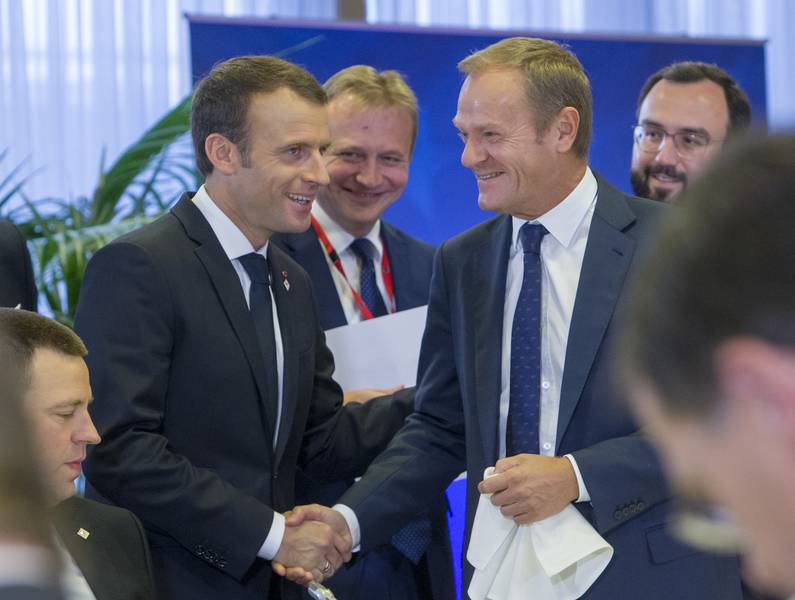 Under this procedure, the European political parties nominated their own candidates for the position of European Commission president. Winner is the candidate of the party which received the biggest number of votes - Jean-Claude Juncker (Luxembourg, EPP). Back then there were leaders who opposed the idea but Pandora's box was opened. The Parliament is ready to fight for this hard won right whatever it takes. And from Donald Tusk's statements it can be concluded that this will indeed be a severe battle. He said in Strasbourg in October, when he reported on the outcome of the October European Council, that he takes all ideas seriously, but added: "I personally believe that the most natural solution would be to adopt a simple rule: fewer countries, fewer mandates. It is not only pragmatic and logical, but also what is expected by public opinion. Of course, such a solution in no way invalidates the idea of transnational lists", he said.
Under this procedure, the European political parties nominated their own candidates for the position of European Commission president. Winner is the candidate of the party which received the biggest number of votes - Jean-Claude Juncker (Luxembourg, EPP). Back then there were leaders who opposed the idea but Pandora's box was opened. The Parliament is ready to fight for this hard won right whatever it takes. And from Donald Tusk's statements it can be concluded that this will indeed be a severe battle. He said in Strasbourg in October, when he reported on the outcome of the October European Council, that he takes all ideas seriously, but added: "I personally believe that the most natural solution would be to adopt a simple rule: fewer countries, fewer mandates. It is not only pragmatic and logical, but also what is expected by public opinion. Of course, such a solution in no way invalidates the idea of transnational lists", he said.
Regarding the Spitzenkandidaten, he made it clear he is against arguing that Jean-Claude Juncker was elected by 26 votes against two in the European Council, whereas in the European Parliament he received 422 out of 729. "So, its easy to imagine a situation that it will be more difficult for the winning Spitzenkandidaten to win sufficient support in the new EP than in the Council". The reaction was immediate. MEPs reacted passionately. Most outspoken was, as always, the leader of the Liberals' group Guy Verhofstadt (Belgium). "If I may give you one little piece of advice – do not open again the Spitzenkandidaten. We decided here in 2014 that it is an enormous achievement of European democracy. It is because of the Spitzenkandidaten that we have our President, Jean-Claude Juncker, here, and we will not accept any more changes to this system and this achievement of European democracy", Verhofstadt said and added:
"That brings me, finally, Mr Tusk, to the remark you made on the composition of Parliament and the announcement that there will be an informal summit on it on 23 February. Fantastic! Maybe there are other things that I could organise to have an informal summit about, but you have to know that the legislative initiative for the composition of the Parliament is of this Parliament and not the European Council. I have to tell you that", were the words of the ex-prime minister of Belgium in Strasbourg on 24 October. Maria Joao Rodrigues (S&D, Portugal) warned on behalf of the group that the Spitzenkandidaten procedure must be respected. "This is our wish and our warning", she said.
Paulo Rangel (EPP, Spain) expressed concern with the idea for a special summit dedicated on the composition of the EP. "I, as a professor of constitutional law who teaches his students about the English revolution, say that we will not give up, we will not resign, and we will define our own composition because we feel we are the sovereign representatives of the European people. The Council should be aware of this in any case".
Further on the Tusk's agenda, in March, is planned leaders to discuss the development of the single market, trade policy and the ongoing free trade negotiations, energy and climate. On the agenda for the spring European Council is digital economy and digital taxation. For May 17 is planned the mega summit of the 28 EU leaders and the leaders of the six Western Balkan countries, which will be held in Sofia in the framework of the Bulgarian Council presidency. Under a question mark in the agenda is another topic - achieving a comprehensive agreement on the migration issue - external and internal aspects.
The June summit will be decisive for the future of the eurozone and for the composition of the European Parliament. Tusk proposes the leaders to make a review of the implementation of the Leaders' Agenda. In September and October, there will be summits dedicated entirely on internal security - external border checks, exchange of information, prevention of radicalisation, etc. Migration is a point on the agenda of the October European Council of 2018 too. And for the end of the year the first serious conversation on the next multiannual financial framework is planned. For 2019 the agenda is scarce. In 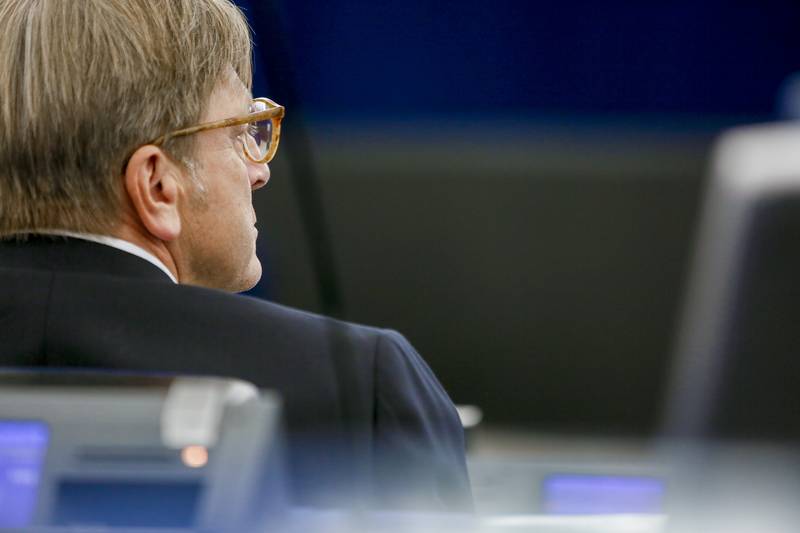 the spring, the leaders will discuss economic issues and trade, and will review the situation with the completion of the euro area.
the spring, the leaders will discuss economic issues and trade, and will review the situation with the completion of the euro area.
In May, on the occasion of Brexit, there will be an informal summit in Sibiu, during which there will be another review of the implementation of the Leaders' Agenda and preparations will begin on the EU strategic programme for the period 2019-2024. The date is not an accident - May 9 - the Europe day. On June 20-21, Tusk hopes the negotiations on the new multiannual budget can be completed, to approve the strategic programme and to make decisions on key appointments - a new European Council president, a new Commission chief, new high representative, new ECB president.
With his agenda, which is a precedent in the European Council, Tusk also targeted the boss of the European Commission, Jean-Claude Juncker, who presented his own agenda during his state of the Union address in September. The two agendas overlap to some extent, but there are some serious differences, the most important of which concerns June 2018. Juncker wants the leaders to occupy themselves with the Commission communication on the future of the energy and climate policy, including the Euroatom agreement. Another important issue, which he proposes to be discussed then, is the communication on moving toward qualified majority voting in the Council when it comes to decisions related to common foreign policy. The Commission also insists on qualified majority voting on issues related to the single market.
On the Commission agenda for June is also increasing the powers of the European Prosecutor's Office to include fight against terrorism. It was Juncker who proposed a day after UK leaves the EU a formal EU summit to take place in Sibiu on March 30, as Romania will be presiding over the Council at that time. He wants key decisions to be taken at that summit with unanimity on the future of the EU. In Tusk's agenda, this summit is planned for May 9th and the issues to be discussed will be reporting on the progress of implementation of the agenda itself, as well as preparation for the strategic programme for the next five years.
During the October summit, Juncker generally seemed to be supporting Tusk's agenda, although he hinted that he was the first to come up with an agenda presented to the leaders during their informal summit in Tallinn in September. "We fully support [the agenda] because it reflects our own concerns but also reflects a number of concerns specific to Donald", Juncker said at a press conference in the end of the second day of the 19-20 October summit. There were differences between the two also regarding the eurozone. Earlier this year, the Commission came up with a reflection paper on the development of the currency club, which contained ideas from the five presidents' report but also some own ideas. In his address in front of the MEPs on 24 October, Donald Tusk quoted only the five presidents' report. His ambition is to broker an agreement on the establishment of a European Monetary Fund by June and to strengthen the banking union.
The leaders generally accepted the agenda. Support was significant for the agenda itself but some of the statements revealed differences regarding the proposed working method, according to which the European Council will take over a large part of the functions of the Council if ministers delay too much certain legislation. Obviously, this was not something German Chancellor Angela Merkel liked. She said the objective was the European Council to set the political direction and then the various Council configurations to handle the implementation. She, however, sides with the idea countries which want deepening of integration to not be forced to wait for the others.
"We talked about that we want to try to carry everyone with us but that there ought to be the possibility - take a look at Schengen, take a look at the euro, for example - that if some don't want to go along the others can pursue a certain project. But, generally, everyone expressed their interest to be active on this agenda and developing it further", she said and underlined that the future of the eurozone was a matter only for the members of that club. French President Emmanuel Macron supports a combination of Juncker's and Tusk's agendas but he has ideas of his own, too.
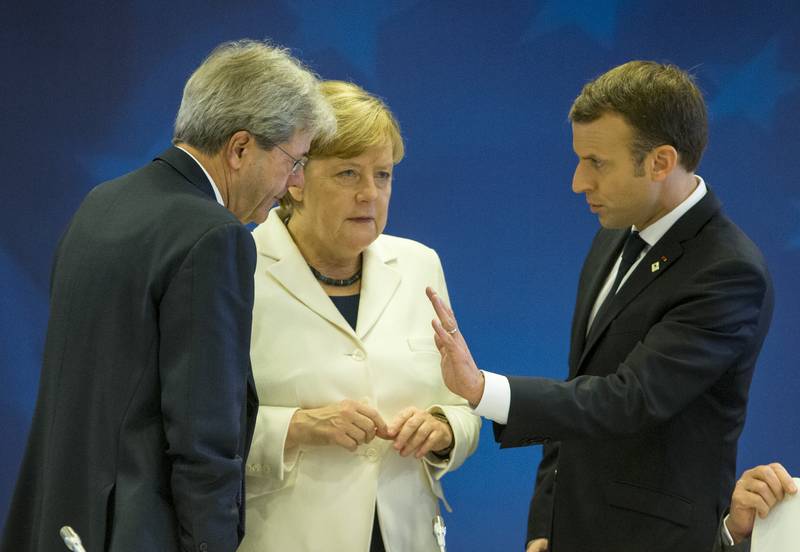 "I believe that what is being proposed by President Tusk at the moment, with the support of President Juncker and the main member states, we need to combine a number of things. First, unity at 28. Then, for many years, when there was unity there was lesser degree of ambition. Here we're talking about the political ambition of revamping Europe. It doesn't mean that we shall all agree. It means that those, who are willing to, shall move on and do more, and then those who would like to join at a later stage can do it", Mr Macron explained. He has an agenda of his own, a large part of which was presented during his European speech in the Sorbonne. The French president wants by the summer an agreement to be reached on the strategic issues which will be followed by democratic conventions on the future of Europe.
"I believe that what is being proposed by President Tusk at the moment, with the support of President Juncker and the main member states, we need to combine a number of things. First, unity at 28. Then, for many years, when there was unity there was lesser degree of ambition. Here we're talking about the political ambition of revamping Europe. It doesn't mean that we shall all agree. It means that those, who are willing to, shall move on and do more, and then those who would like to join at a later stage can do it", Mr Macron explained. He has an agenda of his own, a large part of which was presented during his European speech in the Sorbonne. The French president wants by the summer an agreement to be reached on the strategic issues which will be followed by democratic conventions on the future of Europe.
France will provide the model for these conventions and will be the first to organise such. Macron said that Germany, Finland and a few other countries support the idea. The conventions will be voluntary. The Commission is ready to support the initiative. Ireland Prime Minister Leo Varadkar, who is also part of the new generation European politicians, said that Ireland will organise a discussion on its own about the future of Europe at which people have to agree what future they want for Europe. This is key bearing in mind that Ireland was one of the countries that initially blocked, at a referendum, previous reforms of the Union. From Mr Varadkar's words, it became clear that he does not mean Macron's democratic convention. Moreover, he hinted of differences with the French president.
"I don't agree with everything he is suggesting but I think his ambition is welcome. He's a very different sort of politician. I suppose the fact that for the first time he won an election was as president which actually makes a lot for most of us, who have come up from local authorities and through parliaments and so on, and he is definitely a somebody who has a vision for the future of Europe. He comes to the meetings very passionate and very convinced of what he is saying". Leo Varadkar specifically emphasised that he insists on the community method. According to him, the vision for the future must be led by the European institutions, not by any individual member state. "So, it is not that Macron's ideas are not welcome. It is just that they are not any more welcome or any more important than those put forward by any other prime minister or president", the Irish premier explained.
The Italian Prime Minister Paolo Gentiloni commented on Tusk's agenda with one sentence: "This is the end of the winter of European discontent". The Croatian prime minister saw back in June that the wheels are turning and some countries may drop off, which is why the government and the central bank launched an urgent preparation for Croatia's accession to the euro area. In his words, Croatia must be part of Europe's core. The then prime minister of the Czech Republic, Bohuslav Sobotka, welcomed Tusk's proposal first to look for consensus and only then to open the possibility for closer cooperation of a smaller group. "I particularly appreciate the proposal to seek consensus on the EU's asylum policy since this would give the Czech Republic and member states of the Visegrad Group the chance to say 'no' to the compulsory redistribution of migrants".
After the elections in the Czech Republic, there are no reasons to believe there will be a significant change in the current eurosceptic policy. The Czech Republic's scepticism, especially when it comes to the eurozone, remains high and many parties tried to win votes precisely by opposing the euro, local media reported.
Tusk's vision for Europe
When reporting to the EP on the achievements of the 19-20 October summit, Donald Tusk made his most significant speech so far. The former Polish premier outlined three main dimensions of the EU. First of all, it is a territorial community, he said, which means common external borders and therefore a common duty to protect them. Secondly, the EU is a cultural community. "We have the right and obligation to care for what distinguishes us from other cultures - not in order to be against someone, but to be ourselves", he said, thus obviously trying to reconcile the two camps in the internal European conflict over the migration and refugee crisis.
Speaking of the third dimension - political community - Donald Tusk stated that it is high time to renew vows in the EU and if some countries are not willing to accept the European values they should accept the consequences. "I would like to remind all those in power, all the member states, that by signing the treaty, you have also signed this article [Article 2 of TEU]. So either you respect it, or you clearly say you reject it, with all the consequences of this fact", Donald Tusk said in front of the stunned audience in the plenary in Strasbourg.
During the debate which ensued, Guy Verhofstadt asked whether the Union is ready to make the planned radical changes. In order to be ready, it is necessary to first clear the Union's structural flaws one of which is the unanimity rule that often blocks progress. Verhofstadt recalled that Jean-Claude Juncker has a proposal to resolve this problem thus revealing preferences for Juncker's agenda. Another flaw that blocks progress is the endless list of opt-outs, opt-ins and other exceptions. To the former premier of Belgium, author of books on EU's future, the moment of truth will come with the negotiations on the new multiannual financial framework. "Are we really ready to implement these ambitious plans of Jean-Claude Juncker, of Emanuel Macron, and of your agenda? Then it is necessary t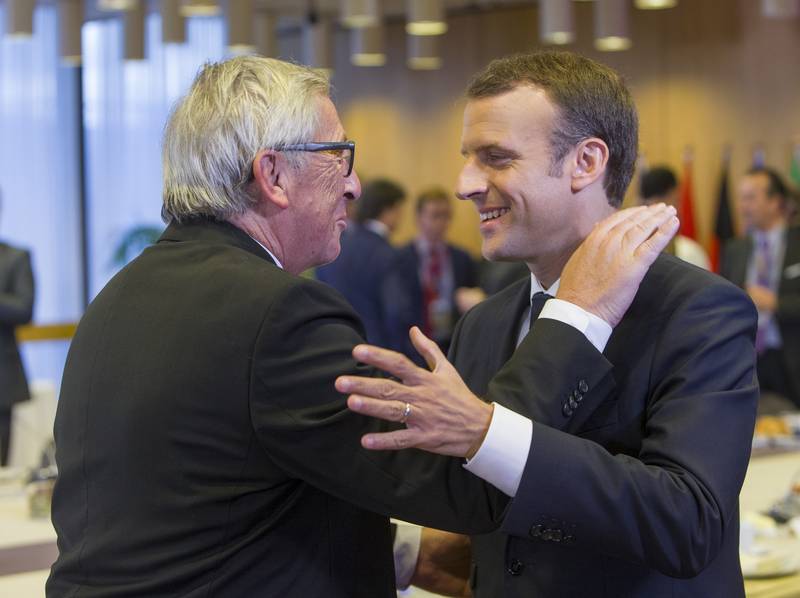 hat we also be ready to open this financial framework and to give more than the former 1%, which is ridiculous if we want to fulfil all the ambitions that we have today", the liberal MEP said.
hat we also be ready to open this financial framework and to give more than the former 1%, which is ridiculous if we want to fulfil all the ambitions that we have today", the liberal MEP said.
The leader of the far left block Gabriele Zimmer (Germany) asked a number of questions, among them: "What will happen with the proposals the Commission made in the spring about the five scenarios?", "Is there really going to be a broad debate with the citizens in the member states?", "I would like to know whether agreement about the leaders' agenda means that we are moving away from the failed intergovernmental methods that Chancellor Merkel used so often?", "Does it mean that the Eurogroup and other bodies that do not have legitimacy are now going to be restricted?", "How does the Council envisage future cooperation with the EP and national parliaments in a very shortened period for debate you are proposing?", "If it is going to be that you tell us what to do this is simply not acceptable", Gabriele Zimmer said.
Philippe Lamberts (Greens/EFA, Belgium) recalled that the Commission and the Parliament for years have been publishing calendars of their meetings. "And so, finally, the Council is starting to organise their work. Perhaps they are going to make their debates public very soon?", he suggested. Andrey Kovatchev (EPP, Bulgaria) sympathised with the heavy task Tusk and Timmermans have to find compromises among countries with various wishes, especially in an environment where decisions are taken with unanimity. "It is fair those countries that want more integration in a certain area to have this opportunity, and those who do not want to should not deter the others to move forward in a certain area", he said but urged the criteria for euro area accession not to be changed.
It is worth noting that no one from the MEPs who spoke during the more than 3-hour long debate commented on Tusk's second and third dimension - the cultural and political community - and this is a significant change of narrative and is in fact a challenging act.
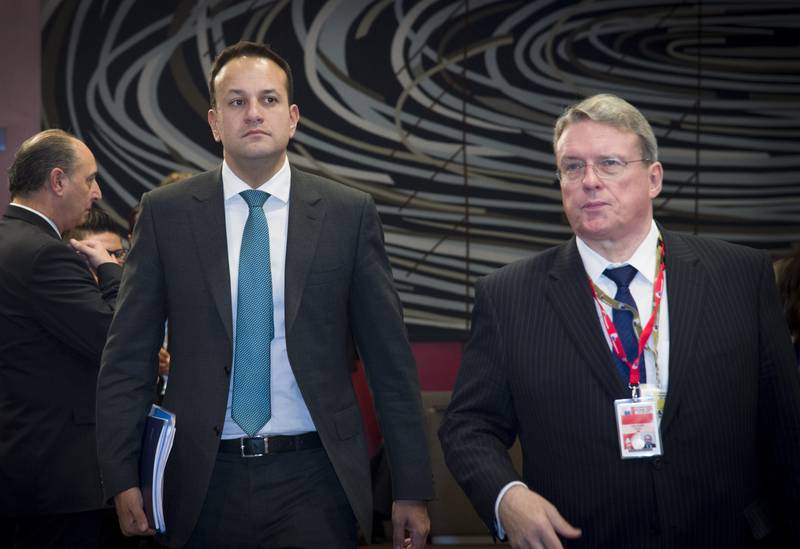 Leo Varadkar | © Council of the EU
Leo Varadkar | © Council of the EU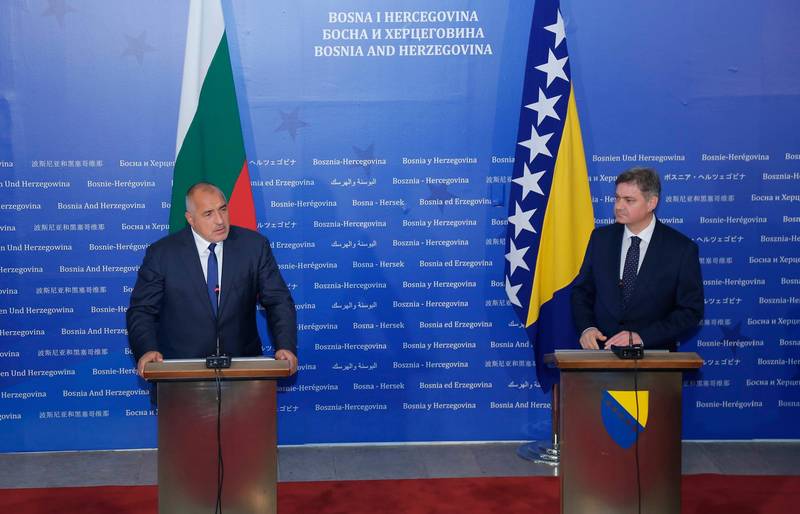 Boyko Borissov, Denis Zvizdic | © GIS
Boyko Borissov, Denis Zvizdic | © GIS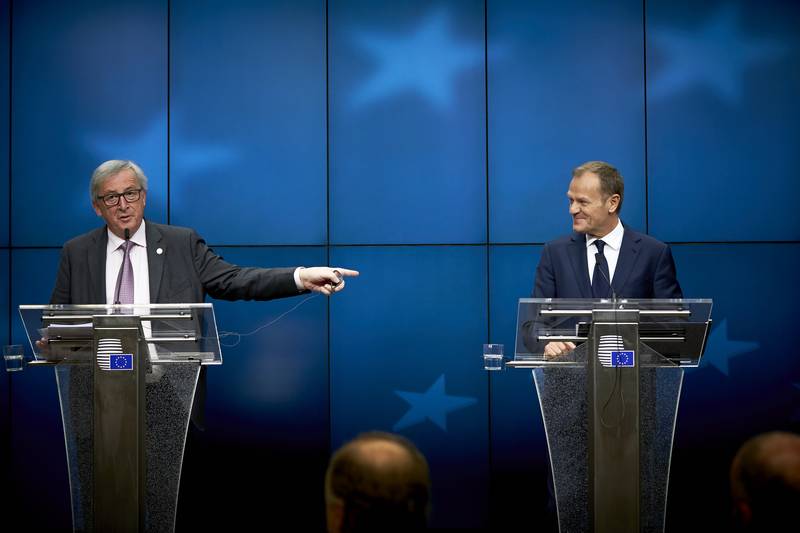 Jean-Claude Juncker | © Council of the EU
Jean-Claude Juncker | © Council of the EU